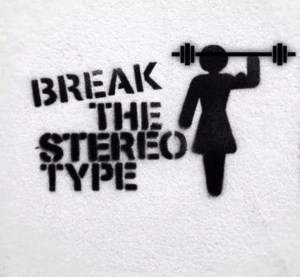
Women & Weights
Since the beginning of the fitness and health boom, there has always been this overriding theory that women are confined to the ‘cardio zone’ whilst men are grunting away with all the heavy dumbbells. Even with the more recent shift in popularity and the monumental overload of hashtags on social media apps there is still a significant lack of females participating in weightlifting. In 2011, the American college of Sports Medicine (ACSM) published guidelines for both males and females, with an exercise regime that included weight training on two or more days a week. Similarly, our NHS recommends that adults of both genders participate in bodyweight and weighted resistance exercises to improve health…so why do we still have this disparity.
From a health standpoint, the benefits of women lifting weights far out way the negatives. The social standpoint that women shouldn’t be seen in a weightlifting environment are void, studies have shown that women are capable of adapting to the stresses placed on the body through weightlifting (5/6) and can reap the rewards just as men. Weight training can improve not only physical attributes, but also mental health (2). Training can have a positive effect on musculoskeletal disorders such as Osteoarthritis, Osteoporosis and other issues associated with ageing (1) along with improvements in mobility and function (3).
In comparison to ‘cardio’ based training alone…weightlifting is exceeding. Cardio based exercise programs have a tendency to lead the body into a stagnation. We are designed to adapt to different environments and/or stresses placed upon us, but that means we need a consistent change of stress… The long treadmill runs become boring and de-motivating, and actually are pointless. Additionally, in terms of calorie expenditure… as your body gets accustomed to the same cardio based workout, your metabolic rate will decrease and changes in body composition/fat mass will lessen. With strength based training, your metabolic rate is increased through a process called mitochondrial biogenesis and in short, a greater metabolic rate results in a higher calorie expenditure (4). This isn’t to say that cardio is bad…just that it is more beneficial to have a greater inclusion of weights.
Unfortunately, despite the evidence that weight training has a positive impact on physical health, mental health, reducing body fat levels and the risk of injury… there is still an overriding fear that if women will turn into the female equivalent of the hulk for even stepping into the free weights area. As a coach, I consistently hear the phrase ‘I don’t want to get too big and bulky’ when in reality, it’s just not going to happen. Women have less muscle tissue than men, they are on average smaller in stature and have wider hips compared to shoulders which aren’t designed to carry muscle tissue. Although through maturation, men and women grow at a similar rate, men reach a higher stage due to different hormones such as testosterone, which promote protein synthesis (muscle growth and repair). Essentially, as women don’t have the hormonal and genetic makeup as men, without extensive years of dedication to heavy weight training, along with external supplements such as steroids…the results of weight training won’t be the same as men.

Numerous research studies (1,4) have concluded, women who try strength training have positive experiences and results such as feeling healthier and more fit, an improved body image and a better attitude about their physical selves. The bottom line is that training with weights accentuates femininity, increases health and strength, and is the best exercise to help you lose body fat and maintain a fit and trim body. So Ladies…don’t be intimidated by lifting weights, here at the Y club, we can provide training programs to guide you. Our trainers will inform you of what exercises are best, how to perform them correctly and what weight you should be lifting. If you would like to book in for an induction or review, contact the reception staff who will be able to get you booked in.
References
- Ahmed, C., Hilton, W., Pituch, K. (2002) Relations of Strength Training to Body Image Among a sample of Female University Students. Journal of Strength Conditioning Research, 16(4), 645-648.
- Atlantis, E., Chow, C. M., Kirby, A., Fiatarone, Singh, M. (2004) An effective exercise-based intervention for improving mental health and quality of life measures: a randomized controlled trial. Preventative Medicine, 39(2), 424-34.
- Beitz, R., Doren, M. (2004) Physical activity and postmenopausal health. Journal of the British Menopause Society, 10(2), 70-4.
- Depcik, E., & Williams, L. (2004). Weight training and body satisfaction of body-image- disturbed college women. Journal of Applied Sport Psychology,16(3), 287-299.
- Kemmler, W., Lauber, D., Weineck, J., Hensen, J., Kalender, W., Engelke, K. (2004) Benefits of 2 years of intense exercise on bone density, physical fitness, and blood lipids in early postmenopausal osteopenic women: results of the Erlangen Fitness Osteoporosis Prevention Study (EFOPS). Archives of Internal Medicine, 164(10), 1084-91.
- Kraemer, W., S. Mazzetti, B. Nindl, L. Gotshalk, J. Bush, J. Marx, K. Dohl, A. Gomez, Miles, S. Fleck, R. Newton, and K. Hakkinen. (2001) Effect of resistance training on womens strength/power and occupational performance. Medicine in Science and Sports Exercise, 33:1011-1025.
- National Strength and Conditioning Association (1989) Strength Training for Female National Strength and Conditioning Association Journal, 11:43-55, 29-36.
- Yan, Z., Okutsu, M., Akhtar, Y. N., & Lira, V. A. (2011). Regulation of exercise-induced fiber type transformation, mitochondrial biogenesis, and angiogenesis in skeletal muscle. Journal of Applied Physiology, 110(1), 264-274.
